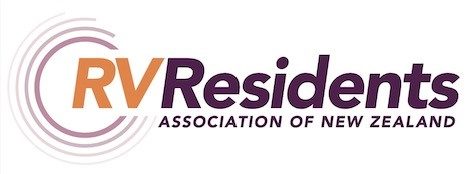LEGISLATION
Retirement Village Legislation
There are two main components to the legislation relating to retirement villages – the Retirement Villages Act 2003 and the Code of Practice 2008.
The Act came into force on 1 February 2004. To quote from Clause 3 of that document, its purpose “is…
- (a) to protect the interests of residents and intending residents of retirement villages
- (b) to enable the development of retirement villages under a legal framework readily understandable by residents, intending residents, and operators”.
In Clause 3 (c) it sets out further detail relating to the sections (a) and (b), with reference to:
- promoting understanding by residents,
- providing a regulatory and monitoring regime, and general oversight of entry to and operation of villages,
- security and protection of the rights of residents.
It also refers to the administrative power being assigned to the Registrar of Retirement Villages and the Retirement Commissioner. In addition the Retirement Villages Act sets out the obligations of operators of retirement villages, and / or their appointed deputy, to meet the requirements set out in the Act.
The role of RVResidents in monitoring legislation is to maintain a watching brief on:
- the Retirement Villages Act 2003
- the level of compliance by village management
- actions of retirement village owners and possible contravention of the Act
- possible necessity for change of the Act, and to;
- act as a consultative body with regard to any changes in the Act.
The RVResidents draws on the expertise and experience of its members to report on breaches of the Act. We may raise
issues with the organisations responsible for such
breaches.
Village operators must comply with the Act and the associated Retirement Villages Code of Practice 2008.
Retirement Villages Code of Practice 2008
Each village operator must comply with the Retirement Villages Act 2003 and the associated Retirement Villages Code of Practice 2008.
The Code of Practice sets out the minimum requirements that village operators must ensure are carried out in order to meet their legal obligations under the Act. The Code also provides useful information relating to the Retirement Villages Act 2003.
Village operators compiance requirements in the Code include:
- General requirements – policies, procedures, notices, and induction requirements
- Minimum requirements of information to be included in any occupation right agreement (ORA)
- Staffing
- Safety
- Fire protection and emergency management
- Transferring residents within a village
- Meetings with residents
- Complaints
- Account
- Maintenance and upgrading
- Termination of an ORA
- Communications with residents

Occupation Right Agreement
This is any written agreement that confers on any person the right to occupy a residential unit within a retirement village.
The Occupation Right Agreement may be titled exactly that or have one of the following titles:
- License to Occupy
- Unit Title
- Rental
There may be a combination of these documents. They specify any terms or conditions to which that right is subject. The documents you sign are a legal commitment between you and the operator. It is important that you fully understand the document and all its detail before you commit to the agreement. The agreements set out conditions related to the following:
- Weekly fees
- Deferred Management Fees
- Occupation
- Care facilities provided
- Relicensing when a resident ceases to occupy
- Matters concerning care of the property
Note that the operator must provide a copy of the Code of Practice, the Disclosure Statement, and Code of Residents Rights.

Disclosure Statement
The Disclosure Statement must be provided to an intending resident prior to any commitment to occupy. It describes detail relating to Village ownership, management and supervision:
- the physical state of the village (whether or not it is completed, or there is a building programme in progress)
- occupancy (number of empty units)
- sales detail (average time to re-licence vacant units)
- services and facilities included in unit purchase costs as well as weekly outgoings
- whether or not the weekly service fee is fixed for your term of occupancy, or variable
- charges of all kinds including entry costs, transfer costs, periodical charges, and charges for both long term village maintenance and refurbishment, rates, insurance, and personal care requirements
- the preparation, auditing and disclosure of financial accounts for the retirement village.
Statutory Supervisor
The Retirement Villages Act 2003 requires that a village must appoint a Statutory Supervisor although it does allow for exceptions in special circumstances. A deed of supervision is prepared between the operator and statutory supervisor.
The Statutory Supervisor must:
- provide a stakeholder facility for intending residents and residents who pay deposits or progress payments in respect of Occupation Rights Agreements or uncompleted residential units or facilities at the retirement village.
- monitor the financial position of the retirement village
- report annually to the Registrar of Retirement Villages on the performance of its duties and the exercise of its powers.
For more detail on the role of the Statutory Supervisor go to the Retirement Villages Act, Part 3, Paragraphs 37-47.
Code of Residents Rights
This is a summary of the basic rights given to you by the Retirement Villages Act 2003.
Services and other benefits
You have the right to services and other benefits promised to you in your occupation right agreement.
Information
You have the right to information relating to any matters affecting, or likely to affect, the terms or conditions of your residency.
Consultation
You have the right to be consulted by the operator about any proposed changes in the services and benefits provided or the charges that you pay that will or might have a material impact on:
- your occupancy,
- your ability to pay for the services and benefits provided.
Your obligations to others
Your rights exist alongside the rights of other residents and the rights of the operator, the people who work at the village, and the people who provide services at the village. In the same way that these people are expected to respect your rights, it is expected that you in return will respect their rights and treat them with courtesy.
Right to complain
You have the right to complain to the operator and to receive a response within a reasonable time.
Disputes
You have the right to a speedy and efficient process for resolving disputes between you and the operator or between you and other residents of the village.
Right to be treated with courtesy and have your rights respected
The operator, the people who work at the village, and the people who provide services at the village must treat you with courtesy and respect.
Right not to be exploited
You have the right not to be exploited by the operator, the people who work at the village, and the people who provide services at the village.
Retirement Commissioner
The Retirement Commissioner is an independent Crown entity set up by an Act of Parliament to:
- advise on retirement village issues,
- monitor the implementation of the Retirement Villages Act 2003.
The important legal powers of this office are to:
- advocate for senior citizens,
- monitor services provided to senior citizens.
The Retirement Commissioner has monitoring, information and education functions relating to retirement villages legislation, which also includes administering the disputes process.
For enquiries on the Information and Education functions of the Commission relating to Retirement Villages:
- freephone 0800 268 269
- or email [email protected]
Retirement
Our Sponsors
Please feel free to use this form to contact us through the
RVResidents website


